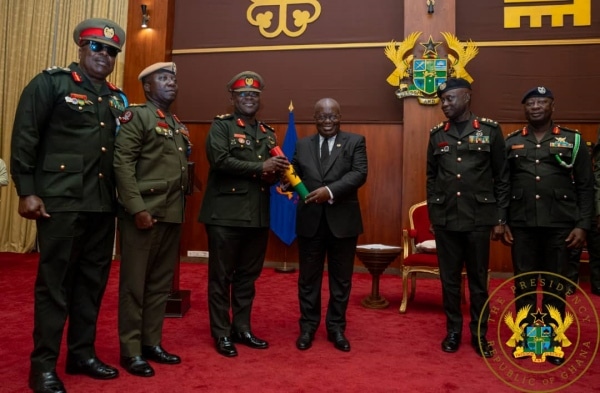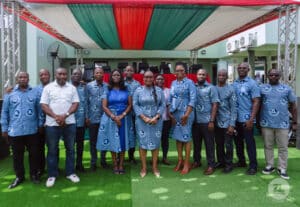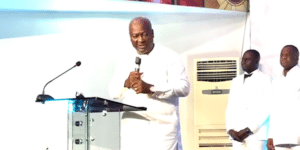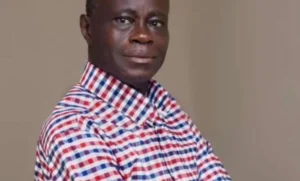The President of the Republic, Nana Addo Dankwa Akufo-Addo, has presented Presidential charters to fourteen meritoriously deserving universities and urged them to be bold in their pursuits, innovative in thinking and committed to making a positive impact in their communities and beyond.
The presentation, which is a transformative milestone in the history of Ghana’s tertiary education landscape is amply testament to government’s unwavering commitment to academic excellence, innovation, and nation building, a key tenet of his entire tenure as President. prevail
A reflection of this has been demonstrated initially with seven private university colleges having been given presidential charters to reflect on the significance of this achievement and the profound impact it has on Ghana’s future since the onset of the current administration in January 2017.
In 2018, Ashesi University College became autonomous. Pentecost University and All Nations University Colleges also gained their autonomy in 2020. In 2022, three faith-based private university colleges, namely the Presbyterian University of Ghana, the Methodist University, Ghana, and the Catholic University, Ghana, also obtained presidential charters. And in 2024, Christian Service University became autonomous.
The fourteen University Colleges are, Academic City University College, KAAF University College, Heritage Christian University College, Ensign Global College, University College of Gold Coast, Knutsford University College, Thrivus Institute for Biomedical Sciences and Technology and Nobel International Business School.
The rest are, Entrance University College of Health Sciences, Accra Metropolitan University College, African University College of Communications, Garden City University College, Family Health University College and the National Defence College.
“As a centre of excellence in security studies, the National Defence College is equipping leaders to tackle emerging challenges in peace and security. These institutions have shown exceptional resilience and ingenuity in overcoming challenges and embracing opportunities for growth. They represent the diversity of talent and ambition that exists within Ghana’s educational sector, President Akufo-Addo said.
The journey of these universities thus far, with renowned areas of specialisation ranging from artificial intelligence, robotics, entrepreneurship, engineering disciplines, information technology, business innovation, management, cyber security, international relations, biomedical research and family health, has carried them through the rigorous process and stringent criteria established by the Ghana Tertiary Education Commission (GTEC), which includes assessments in governance, quality assurance, academic delivery, research, and community engagement.
According to President Akufo-Addo, whilst public universities are established by acts of Parliament, with presidential assents to award their own degrees and diplomas, , private university colleges, on the other hand, have to go through periods of academic mentorship and supervision by mentoring public institutions for the award of degrees and diplomas.
He said, until recently, private university colleges, after 10 years of having demonstrated sufficient capacity in governance, finances, academic matters, and infrastructural development, could then apply to the National Accreditation Board for a presidential charter to enable them to award their own degrees and diplomas.
With the creation of the Ghana Tertiary Education Commission, under the Education Regulatory Bodies Act 2020 Act 1023, however, it is no longer mandatory for new tertiary education institutions to go into affiliation arrangements with existing chartered institutions to be accredited.
“This means that the standard of proof is much higher for new institutions coming on board, as they will have to demonstrate their capacity to operate effectively from the word go,” the President noted.
Describing the journey of these universities as relentless, President Akufo-Addo said, “through mentorship by established universities, they have built robust governance structures, invested in modern facilities, expanded their academic programmes, and upheld the highest standards of teaching and research. This is not only a reflection of their commitment to quality education, but also an acknowledgement of their contribution to the broader development of the nation.”
He pointed out that, the impact of this milestone, aside providing opportunities for our youth to access world-class education within our own borders, is a signal to the world that Ghana is committed to building a knowledge society and economy and reinforces her position as a hub for quality higher education in Africa and beyond.
Referring to them as torch bearers of the legacy of a charter, President Akufo-Addo urged the students and alumni of these institutions to strive to make the most of the inherent opportunities and called on Ghanaians to look forward to a future where Ghana’s tertiary institutions stand as beacons of knowledge, innovation, and development.






